von Karman Institute / ULB Lecture Series
Machine Learning for Fluid Mechanics: Analysis, Modeling, Control and Closures
29 January - 2 February 2024
Next Lecture series: 29 January- 02 February 2024
This is the second lecture series dedicated to machine learning for fluid mechanics. The course is hosted by the Université libre de Bruxelles (ULB) from 29 January to 02 February 2024.
The lecture series is co-organized by Miguel A. Mendez from the von Karman Institute (Belgium), Alessandro Parente from the Université libre de Bruxelles (Belgium), Andrea Ianiro from Universidad Carlos III de Madrid (Spain), Bernd R. Noack from Harbin Institute of Technology, Shenzhen (China) and TU Berlin (Germany) and Steven L. Brunton from University of Washington (US).
The integration of machine learning methods in fluid mechanics continues to grow and open new frontiers. Combining first principles and machine learning offers new avenues to improve predictions and control design, identify patterns, reduce computational costs, enhance measurement techniques, and more generally, get deeper insights into complex fluid phenomena. This lecture series provides an
overview of the current state of the art and a pedagogical introduction to the fundamentals of machine learning tools for fluid dynamics. The course is in its second edition. It follows the successful lecture series held in 2020, which attracted more than 200 participants and resulted in an edited book published by Cambridge University Press.
The course structure and material have been significantly adapted to reflect the rapid growth of the field and current trends. Nevertheless, the format and scope remain unaltered: we combine introductory lectures focusing on fundamental tools and principles with advanced lectures presenting examples of specific engineering problems and applications. The course will also host a poster session, allowing participants to further exchange and discuss topics of their interest.
The lecture series is co-organized by Miguel A. Mendez from the von Karman Institute (Belgium), Alessandro Parente from the Université libre de Bruxelles (Belgium), Andrea Ianiro from Universidad Carlos III de Madrid (Spain), Bernd R. Noack from Harbin Institute of Technology, Shenzhen (China) and TU Berlin (Germany) and Steven L. Brunton from University of Washington (US).
The integration of machine learning methods in fluid mechanics continues to grow and open new frontiers. Combining first principles and machine learning offers new avenues to improve predictions and control design, identify patterns, reduce computational costs, enhance measurement techniques, and more generally, get deeper insights into complex fluid phenomena. This lecture series provides an
overview of the current state of the art and a pedagogical introduction to the fundamentals of machine learning tools for fluid dynamics. The course is in its second edition. It follows the successful lecture series held in 2020, which attracted more than 200 participants and resulted in an edited book published by Cambridge University Press.
The course structure and material have been significantly adapted to reflect the rapid growth of the field and current trends. Nevertheless, the format and scope remain unaltered: we combine introductory lectures focusing on fundamental tools and principles with advanced lectures presenting examples of specific engineering problems and applications. The course will also host a poster session, allowing participants to further exchange and discuss topics of their interest.
Early bird registration has been extended until
10 January 2024!
Day 1. Setting the Stage
Steve Brunton, University of Washington

1.1 Machine Learning for Scientific Discovery, by S. Brunton
- Data is a valuable resource in most fields
- Machine learning is building models from data (we have been doing this for decades!)
- More data, faster computers, and better algorithms/software are transforming our capabilities
- ML is rapidly changing the industrial and scientific landscape, including in fluid mechanic
Steve Brunton, University of Washington

1.2 Motivation for Machine Learning in Fluid Dynamics, by S. Bunton
- Fluidic pinball as a benchmark problem
- The many facets of the unforced and forced wake
- Modes, manifolds and clusters — Different flavors of reduced-order modeling
- From reinforcement to machine learning control — Different strategies for stabilizing the wake
- Good practices for reduced-order modeling and control
Miguel Alfonso Mendez, von Karman Institute for Fluid Dynamics

1.3 F1: Fundamentals of Regression, by M. A. Mendez
- The regression landscape: parametric and nonparametric methods
- The training problem with constraints and penalties
- Linear tools: Radial Basis Functions and Gaussian Processes
- Nonlinear tools: Artificial Neural Networks and Genetic Programming
- Tutorial 1: constrained RBFs for super resolution
- Tutorial 2: collective learning for digital twins
Miguel Alfonso Mendez, von Karman Institute for Fluid Dynamics

1.4 F2: Physics-Constrained Regression and Applications, by M. A. Mendez
- The regression landscape: parametric and nonparametric methods
- The training problem with constraints and penalties
- Linear tools: Radial Basis Functions and Gaussian Processes
- Nonlinear tools: Artificial Neural Networks and Genetic Programming
- Tutorial 1: constrained RBFs for super resolution
- Tutorial 2: collective learning for digital twins
Day 2: Machine Learning Tools
Olivier Le Maître, CMAP, Ecole Polytechnique, France

2.1 F3: Bayesian Inference and Uncertainty Quantification, by O. Le Maître
- Uncertainty Quantification and calibration problems in simulations
- Fundamentals of Bayesian inference
- Markov Chain Monte Carlos methods for posterior sampling
- Example: Gaussian Process models
- Surrogate-Based acceleration of Bayesian inference
- Bayesian models calibration with model error
Luca Magri, Imperial College London, The Alan Turing Institute
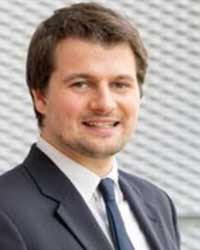
2.2 F4: Predictions in Chaotic Dynamical Systems, by L. Magri
- Time series forecasting and sequential data
- Gated recurrent neural networks
- Reservoir computers
- Physics-constrained machines
Miguel Alfonso Mendez,von Karman Institute for Fluid Dynamics

2.3 F5: Dimensionality Reduction, by M. A. Mendez
- Introduction to autoencoders and manifold learning
- The PCA and the link to modal analysis
- Kernel PCA and Kernel Decompositions
- Fundamentals of ANN Autoencoders
- Manifold learning: Locally Linear Embedding and Isomaps
- Tutorial : Python implementations
George Em Karniadakis Brown University

2.1 F3: Hidden Fluid Mechanics, by G. Karniadakis
- Discover velocity and pressure fields from passive scalars
- AIV: Artificial Intelligence Velocimetry (jets and wakes 3D flows)
- Examples in blood flow and CSF in the brain
Day 3: Simulations, Experiments and Understanding
Soledad Le Clainche, Universidad Politécnica de Madrid
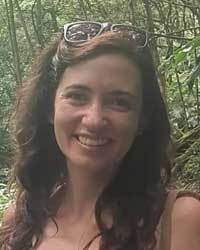
3.1 Reduced Order Models in complex flows, by S. Le Clainche
- Modal decomposition to extract physical features and reduce data dimensionality
- Combining modal decomposition with deep learning strategies
- Machine learning and reduced order models based on physical principles combining numerical and experimental databases
- Applications of reduced order models to acceleratenumerical simulations and to reconstruct flow fields from sensor measurements
Beverley McKeon, Stanford University
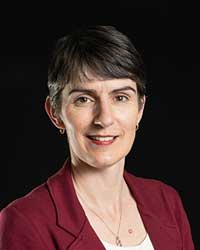
3.2 Equation- and Data-driven Reduced Order Modeling, by B. McKeon
- Equation-driven vs. data-driven reduced order modeling
- Resolvent analysis and resolvent-based modeling for turbulent flows
- Physics-informed, input-output analysis in the machine learning framework
- Application for discovery, modeling and control
Paola Cinnella, Sorbonne University
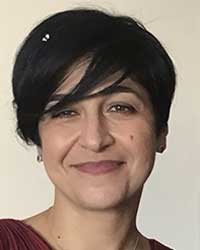
3.3 Data-driven turbulence Modeling, by P. Cinnella
- Reminder of turbulence fundamentals and modelling approaches
- Limitations and uncertainties in turbulence models
- Machine learning techniques for data-driven turbulence modeling, review of existing approaches and pitfalls
- Ensemble methods for robust predictions
Andrea Ianiro, Universidad Carlos III de Madrid

3.4 Data Enriched Experiments, by A. Ianiro
- Experimental discrete data
- Exploiting data ensembles: Reducing noise
- Exploiting multiple measurements: Data Fusion
- Data-driven enhancement of the spatial and temporal resolution in experiments
Day 4: Improving Performances
Bernd Noack, Harbin Institute of Technology
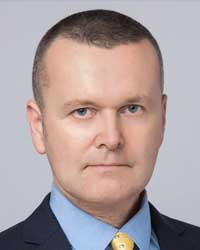
4.1 Machine Learning Control, by B.Noack
- Turbulence control problem: Engineering examples and considerations
- Control landscape and control-law representation: Tools for understanding
- Machine learning control (MLC): Automated learning of multiple-input multiple-output feedback
- Multi-scale MLC: Distributed input distributed output feedback
- Smart skin separation control: A challenging case study
Semeraro Onofrio , Laboratoire Interdisciplinaire des Sciences du Numérique, LISN – CNRS – Univ. Paris-Saclay
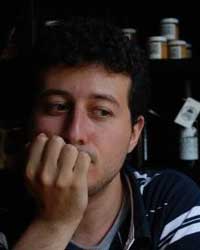
4.2 Reinforcement Learning, by Onofrio Semeraro
• Introduction to Reinforcement Learning: basic ideas and noteworthy examples in fluid mechanics
• From linear to nonlinear optimal control: the Hamilton-Jacobi-Bellman (HJB) equation
• HJB and dynamic programming; policy iteration; value iteration
• Classification of methods; main algorithms and a few keywords (Q-learning, Reinforce algorithm, actor-critic, exploitation vs exploration)
• Comparison with other paradigms in control (MPC, adaptive filters) and current trends (if time permits)
• Introduction to Reinforcement Learning: basic ideas and noteworthy examples in fluid mechanics
• From linear to nonlinear optimal control: the Hamilton-Jacobi-Bellman (HJB) equation
• HJB and dynamic programming; policy iteration; value iteration
• Classification of methods; main algorithms and a few keywords (Q-learning, Reinforce algorithm, actor-critic, exploitation vs exploration)
• Comparison with other paradigms in control (MPC, adaptive filters) and current trends (if time permits)
Stefano Discetti, Universidad Carlos III de Madrid
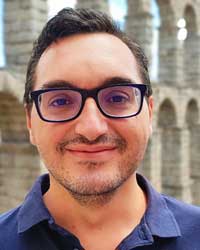
4.3 Model Predictive Control, by S. Discetti
- Introduction to MPC fundamentals
- Challenges of MPC application in fluid dynamics
- Nonlinear vs linear MPC
- Self-tuned hyperparametrization of nonlinear MPC
- Tutorial: Matlab implementation
P. Bekemeyer, German Aerospace Center, DLR

4.4 Data-Driven Modeling for Enhanced Aerodynamics, by P. Bekemeyer
- Potentials and limitations of Machine Learning for Industrial applications
- Data-driven shape optimization, uncertainty quantification & robust design
- Deep learning for aerodynamic data prediction
- Machine Learning for enhancing computational fluid dynamics
Day 5: Heading into the fourth Industrial Revolution
Omer San, University of Tennessee, Knoxville
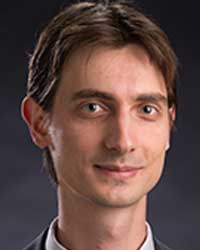
5.1 Digital Twins: Challenges and Enablers, by O. San
- Digital twin: taxonomy and terminology
- Capability levels of a digital twin
- Hybrid physics-data driven modeling
- ROM as a key enabler for digital twins
Alessandro Parente, Université libre de Bruxelles
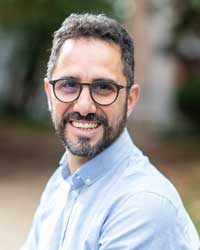
5.2 The role of digital twins in the energy transformation, by A. Parente
- Energy-intensive industries
- Challenges in turbulent combustion simulations
- Low-dimensional combustion manifolds
- Data-driven modelling of reacting flows
- Reduced-order models and digital twins
Jacqueline Chen, Sandia National Laboratories
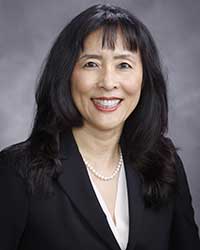
5.3 Reduced Order Surrogate DNS of Turbulent Combustion at the Exascale, by J. H. Chen
- DNS of turbulent combustion: opportunities and challenges
- Data-driven approach: principal component transport
- Model-drive approach: time-dependent bases for on-the-fly ROM
- Performance on HPC and data sharing

5.4 Round Table



